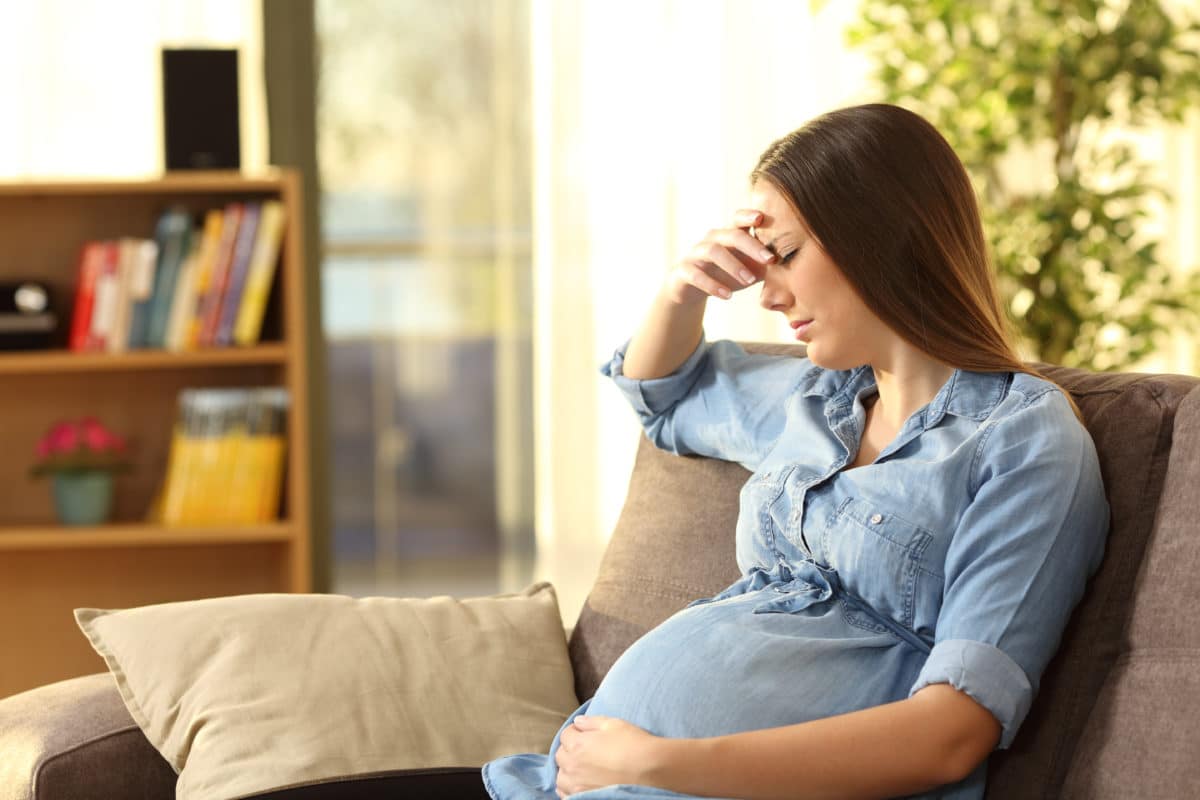Pregnancy can be an exciting and joyful time – except for the discomfort, weird body changes, aches and pains. Learning how to deal with pains during pregnancy is essential to your health and to your well-being, particularly if you are a first-time mother surprised and exhausted by your body’s changes.
For a smoother pregnancy this time around (and for healthy pregnancies in your future) we’ve got you covered. Let’s explore this list of conditions you may experience during pregnancy as well as practical tips to help you manage them.
#1: Joint pain and carpal tunnel
Weight gain is inevitable during pregnancy. The extra stress it puts on your joints can lead to inflammation. Carpal tunnel, worsened by fluid retention, amplified hormones and repetitive use of your hands and wrists, is also quite common.
Try these tips to alleviate pain:
- Take precautions against ligament pain by keeping off your feet for long periods.
- Prevent putting increased pressure on your knees and feet by elevating your legs.
- Use ergonomic solutions to help wrist posture.
- Refrain from strenuous activity in your hands.
- Try to sleep with your hands elevated on a pillow.
- Talk to your doctor about prescription NSAIDs when needed.
#2: Digestive problems
Heartburn and indigestion
Many women experience heartburn – often for the first time – during pregnancy. Hormones released by the placenta relax many muscles in the body, including the lower esophageal sphincter. This separates your stomach and esophagus, resulting in stomach acid that can creep up toward your throat.
Symptoms are likely to be at their worst during your second and third trimesters. Treating heartburn will likely be a daily battle until delivery.

Try these tips as you fight that battle:
- Avoid foods that trigger excess bile production. This includes spicy and acidic foods, caffeine, processed meats, dairy, high-fat or fried foods, carbonated drinks and chocolate.
- Don’t eat before lying down.
- Keep your meals smaller and more frequent.
- Drink plenty of water between meals rather than during.
- Remember that drinking too many fluids during meals will top-off your stomach and lead to spill-out.
- Stock up on antacids that are high in magnesium or calcium and low in aluminum, aspirin and sodium. Your doctor or midwife may prescribe medications to help.
Constipation and diarrhea
The same hormones that cause heartburn can affect your gut. Symptoms include abdominal pain, constipation and diarrhea.
Put these tips to work:
- Eat a whole foods based diet, and increase your intake of fiber.
- Drink lots of water. This will regulate your bowel movements, decreasing the chances of either extreme.
- Talk to your doctor about a low-dose stool softener if needed. Medications and vitamin supplements you take during pregnancy are often high in iron and can increase your chance of constipation.
Nausea
Up to 80% of pregnant women deal with morning sickness. Most find their experiences limited to their first trimester. However, some women even have to deal with nausea throughout their entire pregnancy.
Consider these tips to ease your tummy:
- Try eating crackers a few minutes before getting out of bed.
- Eat smaller meals throughout the day. Avoid spicy and odorous foods that may irritate your stomach.
- Use a hot water bottle or a heating pad as needed.
- Avoid napping after a meal. This will help kick-start your digestion process.
- Drink fluids at least a half an hour before meals, but avoid drinking while eating. This will keep the consistency of the food in your belly thick. It will also help to prevent anything from coming up. Water and ginger tea are helpful.
- Check with your doctor about anti-nausea medication. She can also check if your symptoms are normal or caused by something more severe.
#3: Sleep disruption
Culprits of sleep disruption include frequent urges to use the restroom, heartburn, belly tightness and fetus movement.

To tackle insomnia, try these tips:
- Limit daytime naps.
- Cut down on caffeine.
- Take warm baths.
- Use doctor-prescribed sleep aids.
- Maintain a well-balanced diet and stay hydrated.
- Exercise to help ensure a good night’s rest.
- Avoid drinking too many liquids before bed.
- Prop yourself up with a few pillows to promote good breathing and comfort.
#4: Restless leg syndrome
Another common sleep disturbance is restless leg syndrome (RLS). RLS is often confused with a leg cramp. The condition causes an uncontrollable urge to move your legs to alleviate itching, crawling, tingling or burning. Up to 34% of pregnant women suffer from this condition. Hormone changes, vitamin deficiencies and circulation problems are commonly the cause.
Ease your struggle with these tips:
- Avoid caffeine and antihistamines. They can make RLS symptoms worse.
- Get into bed when you’re ready to go to sleep. The longer you stay awake to watch TV or read, the more likely it’s going to be a long night.
- Enjoy a warm bath while massaging your legs.
- Find a prenatal yoga class in your area. Proper stretching can help you find relief.
- Call your doctor about other options available to you. Medications used to treat RLS are not recommended during pregnancy, but in some cases, vitamin supplements and prenatal vitamins can help.
#5: Back pain and sciatica
The extra weight you are carrying around can put stress on your back muscles. This can cause significant posture changes and even sciatica. Fortunately, this pain will most likely subside after birth.
Make the pain more bearable with these tips:
- Exercise to strengthen back muscles and increase flexibility. Talk to a physical therapist about what types of exercise are appropriate for you.
- Use a cold compress and a heating pad. Start with an ice pack a few times a day to reduce swelling, and then switch to heat.
- Consider talking to a chiropractor or an acupuncturist if your pain is still prevalent.
- Take special care to not bend over, to wear shoes that provide support and to sleep on your back.
#6: Migraines
Increased hormones and stress can lead to severe pain during pregnancy in the form of migraines. For many women, these migraines typically subside after birth. However, for women who experienced migraines before pregnancy, the pain may become more frequent and powerful after pregnancy.
Help put your head at ease with these tips:
- Avoid common triggers like stress, caffeine, dairy, chocolate and bright lights.
- Keep a headache diary to show your doctor. This may be helpful in finding an appropriate treatment.
- Try taking a nap with a cool damp rag or compress on your head and the lights turned off.
- Practice relaxation techniques like deep breathing or yoga.
 #7: Breast tenderness and cracked nipples
#7: Breast tenderness and cracked nipples
As your breasts change in size, you may experience tenderness and sometimes even pain. Most women will notice relief in their second trimester, but pain flare-ups will be more common closer to labor when your milk supply increases.
Ease the tenderness with these tips:
- Invest in a supportive bra.
- Wipe off the milk and wash your breasts frequently. Some women’s nipples will become excessively dry and may crack or bleed. If your breasts are leaking colostrum, it may also irritate your nipples.
- Try a moisturizing cream to nourish your skin and keep it from itching or from getting too dry. Continue this treatment throughout the post-partum months, as breastfeeding will likely irritate them more.
For more information on this site about pains during pregnancy, check out this infographic:
 There are many other conditions that may be uncomfortable and painful during pregnancy. The information in this article should not be used to diagnose or treat any condition in a way that is against doctors orders. It is for informational purposes only.
There are many other conditions that may be uncomfortable and painful during pregnancy. The information in this article should not be used to diagnose or treat any condition in a way that is against doctors orders. It is for informational purposes only.
If you feel like you have a serious medical condition, please seek medical attention immediately.
What tips do you have for how to deal with pregnancy pain?
What topics related to pregnancy pain would you like to see us explore?
Email us at info@painresource.com with your ideas.
Are you on Facebook?
Join our online community by clicking here.
Pain management starts and ends with health awareness and dedication. Click here to read more.
This post has been updated in May 2019 with new information and resources.

 #7: Breast tenderness and cracked nipples
#7: Breast tenderness and cracked nipples